Tintal – Benares Tukra 2 Overview
| dhā– | tūnā | kiṭataka | tā–tira |
| X | |||
| kiṭataka | tirakiṭa | takatā– | tirakiṭa |
| 2 | |||
| dhā– | tirakiṭa | takatā– | tirakiṭa |
| 0 | |||
| dhā– | tirakiṭa | takatā– | tirakiṭa |
| 3 | |||
| dhā– | |||
| X |
Performed 3 times with theka:
Background
This tukra, or similar compositions, is played in most gharanas and should be thought of as "common". There may be small differences in the exact bols used, and the fingerings will follow the baj of the gharana, but the composition will be very similar, if not the same.
However, this tukra is more commonly called either a mukhra or mohra. Even in Benares, it may have different names. In the lineage of Sharda Sahai, this composition is called a mohra (Shepherd, 1976). And Chhotelal Misra called this both a tukra and a mukhra in his books.
I personally learned this as a tukra from Chhotelal:
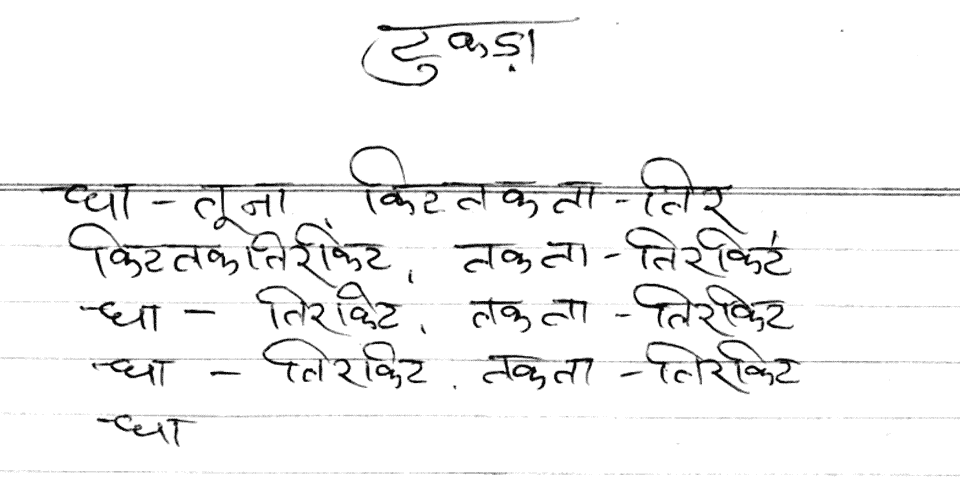
With title “Tukra”, as written by Chhotelal Misra, 1986
Versions from Other Gharanas
I have seen versions of this composition in numerous sources from players of different gharanas. There are some variations to the particular bols, but the overall pattern is virtually identical.
Here is the original tukra/mukhra from Chhotelal Misra:
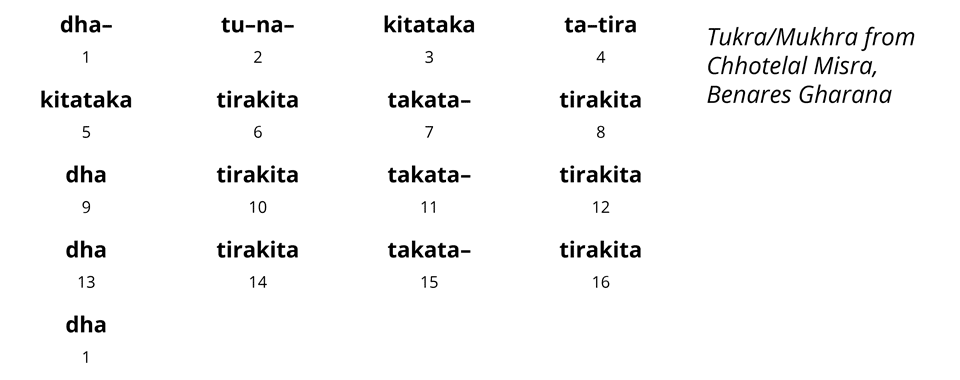
Compare this to a mukhra from Sudhir Kumar Saxena of the Ajrara gharana, from his book "The Art of Tabla Rhythm":
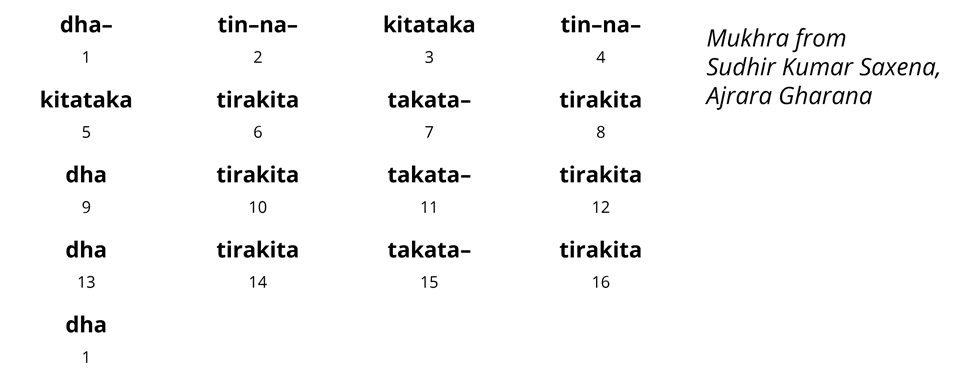
This is almost exactly the same as the Benares version. Tin–na– is the same bol as tu–na–, so only the bols in matra 4 are different.
And here is another version from Nikhil Ghosh of the Laliyana/Farrukhabad gharana (from Wegner’s "Vintage Tabla Repertory"):
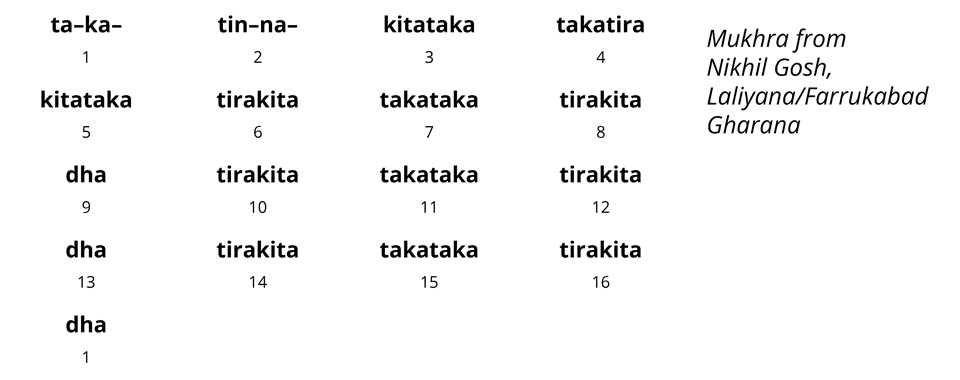
Here, the bols in matra 1 are different, and the open ta– in matras 7, 11, and 15 of the Benares version is now played with the closed taka on the syahi. But otherwise the pattern is the same.
Structure of Benares Tukra 2
The structure of this tukra is very common: 5 matras of mukhra (opening) plus 12 matras of tihai, divided 4-4-4. It keeps a clear flow because it follows the vibhags of the tal; each repetition of the tihai ends with dha on the first matra of vibhags 0, 3, and X:
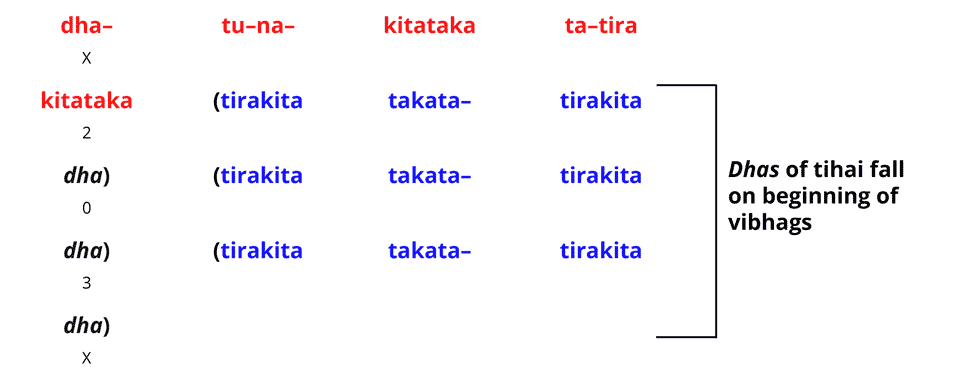
Other compositions with this structure include:
- Benares Tuka 1
- Benares Tukra 6 (as written, this is double the length of Benares Tukra 2, but is has the same pattern)
- 16-Matra Mukhra 2
References
Misra, Chhote Lal. Tal Prabandh. New Delhi: Kanishka Publishers, 2006. (Hindi)
—. Playing Techniques of Tabla – Banaras Gharana. New Delhi: Kanishka Publishers, 2007.
Shepherd, Frances Ann. Tabla and the Benares Gharana. Unpublished Ph.D. thesis, Wesleyan University, Middletown Connecticut, 1976.
Saxena, Sudhir Kumar. The Art of Tabla Rhythm. New Delhi: D.K. Printworld (P) Ltd., 2006.
Wegner, Gert-Matthias. Vintage Tabla Repertory – Drum Compositions of North Indian Classical Music. New Delhi: Munshiram Manoharlal Publishers, 2004.